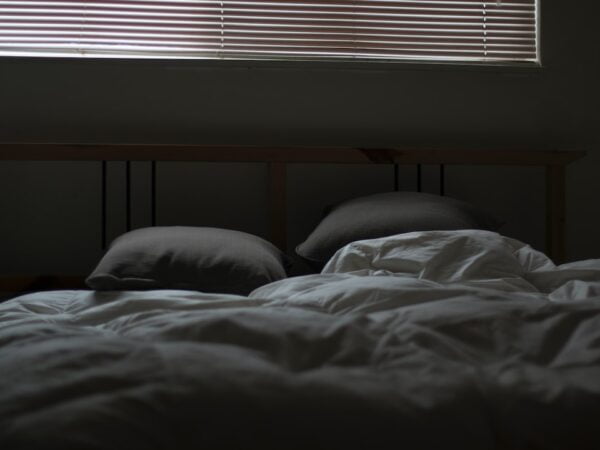
Unlocking the Secrets of Healthy Sleep Patterns: Tips and Tricks for a Restful Night
Sleep is an essential part of our daily lives, yet it is often overlooked and undervalued. Healthy sleep patterns are crucial for our overall well-being and can have a significant impact on our physical and mental health. In today’s fast-paced world, many people struggle with sleep deprivation and various sleep disorders. Understanding the science of sleep, common sleep disorders, and implementing lifestyle changes can help improve the quality of our sleep and ultimately enhance our overall quality of life.
Key Takeaways
- Healthy sleep patterns are crucial for overall health and well-being.
- Understanding the science of sleep, including stages and cycles, and the role of circadian rhythm can help improve sleep quality.
- Common sleep disorders like insomnia and sleep apnea have various causes, symptoms, and treatment options.
- Lifestyle changes like establishing a bedtime routine, creating a sleep-conducive environment, and maintaining a healthy diet and exercise routine can improve sleep quality.
- Relaxation techniques, natural remedies, and cognitive behavioral therapy can also aid in better sleep, while shift workers and older adults may require specific strategies to manage sleep deprivation and changes in sleep patterns.
Understanding Sleep
Sleep is a complex process that involves different stages and cycles. The science of sleep can be divided into two main categories: non-REM (rapid eye movement) sleep and REM sleep. Non-REM sleep consists of four stages, each with its own characteristics and functions. These stages include light sleep, deep sleep, and the transition between wakefulness and sleep. REM sleep, on the other hand, is characterized by rapid eye movements, increased brain activity, and vivid dreaming.
Circadian rhythm plays a crucial role in regulating our sleep-wake cycle. It is our internal biological clock that controls when we feel sleepy or awake. Our circadian rhythm is influenced by external factors such as light exposure, temperature, and social cues. Disruptions to our circadian rhythm, such as jet lag or shift work, can lead to difficulties falling asleep or staying asleep.
Common Sleep Disorders
Insomnia is one of the most common sleep disorders, affecting millions of people worldwide. It is characterized by difficulty falling asleep or staying asleep, waking up too early in the morning, or experiencing non-restorative sleep. Insomnia can be caused by various factors such as stress, anxiety, depression, or certain medical conditions. Treatment options for insomnia include cognitive-behavioral therapy (CBT), medication, and lifestyle changes.
Sleep apnea is another prevalent sleep disorder that affects breathing during sleep. It is characterized by pauses in breathing or shallow breathing, leading to disrupted sleep and excessive daytime sleepiness. Sleep apnea can be caused by factors such as obesity, smoking, or structural abnormalities in the airway. Treatment options for sleep apnea include continuous positive airway pressure (CPAP) therapy, oral appliances, and lifestyle changes.
Restless leg syndrome (RLS) is a neurological disorder characterized by an irresistible urge to move the legs, often accompanied by uncomfortable sensations. RLS can disrupt sleep and lead to daytime fatigue. The exact cause of RLS is unknown, but it is believed to be related to abnormalities in the brain’s dopamine system. Treatment options for RLS include medication, lifestyle changes, and managing underlying conditions.
Lifestyle Changes for Better Sleep
| Lifestyle Changes for Better Sleep | Description |
|---|---|
| Establish a consistent sleep schedule | Going to bed and waking up at the same time every day can help regulate your body’s internal clock. |
| Avoid caffeine and alcohol | Caffeine and alcohol can disrupt sleep, so it’s best to avoid them before bedtime. |
| Exercise regularly | Regular exercise can help improve sleep quality and duration. |
| Create a relaxing bedtime routine | Engaging in relaxing activities before bed, such as reading or taking a bath, can help signal to your body that it’s time to sleep. |
| Avoid screens before bed | The blue light emitted by screens can interfere with sleep, so it’s best to avoid them for at least an hour before bedtime. |
Establishing a bedtime routine can help signal to your body that it is time to wind down and prepare for sleep. This routine can include activities such as reading a book, taking a warm bath, or practicing relaxation techniques. Creating a sleep-conducive environment is also essential for better sleep. This includes keeping your bedroom cool, dark, and quiet, investing in a comfortable mattress and pillows, and removing electronic devices from the bedroom.
Exercise and diet play a significant role in our sleep patterns. Regular physical activity can help promote better sleep by reducing stress and anxiety and increasing the production of endorphins. However, it is important to avoid exercising too close to bedtime as it can stimulate the body and make it difficult to fall asleep. Additionally, maintaining a healthy diet that includes foods rich in tryptophan (an amino acid that promotes sleep) and avoiding caffeine and alcohol before bedtime can also improve sleep quality.
Sleep Aids and Techniques
Relaxation techniques such as meditation, yoga, and breathing exercises can help calm the mind and prepare the body for sleep. These techniques can reduce stress and anxiety, promote relaxation, and improve overall sleep quality. Natural remedies and over-the-counter medications can also be used as sleep aids, but it is important to use them sparingly and under the guidance of a healthcare professional.
Cognitive-behavioral therapy for insomnia (CBT-I) is a highly effective treatment for chronic insomnia. It focuses on identifying and changing negative thoughts and behaviors that contribute to sleep difficulties. CBT-I can help individuals develop healthy sleep habits, manage stress, and improve their overall sleep quality without the use of medication. It is important to note that sleeping pills should be used as a last resort and under the guidance of a healthcare professional, as they can have potential side effects and may not address the underlying causes of sleep problems.
Tips for Shift Workers
Shift work can disrupt the body’s natural sleep-wake cycle and lead to difficulties in getting adequate sleep. Strategies for adapting to a changing sleep schedule include maintaining a consistent sleep routine, creating a dark and quiet sleep environment, and avoiding caffeine and stimulating activities before bedtime. Managing sleep deprivation and fatigue is also crucial for shift workers. Taking short naps during breaks, staying physically active, and practicing relaxation techniques can help combat fatigue and improve overall alertness.
Sleep and Mental Health
There is a strong link between sleep and mental health. Lack of sleep or poor sleep quality can contribute to the development or worsening of mental health conditions such as anxiety disorders, depression, and bipolar disorder. On the other hand, mental health conditions can also disrupt sleep patterns. Practicing good sleep hygiene, such as maintaining a consistent sleep schedule, creating a relaxing bedtime routine, and managing stress, can help improve both sleep quality and mental well-being. If sleep problems persist or are accompanied by symptoms of mental health conditions, it is important to seek professional help.
Sleep and Aging
As we age, our sleep patterns naturally change. Older adults may experience difficulties falling asleep or staying asleep, waking up frequently during the night, or waking up earlier in the morning. These changes can be attributed to various factors such as changes in circadian rhythm, underlying health conditions, or medication side effects. Common sleep disorders in older adults include insomnia, sleep apnea, and restless leg syndrome. Maintaining a healthy lifestyle, practicing good sleep hygiene, and seeking treatment for underlying conditions can help improve sleep quality in older adults.
Healthy sleep patterns are essential for our overall well-being and can have a significant impact on our physical and mental health. Understanding the science of sleep, common sleep disorders, and implementing lifestyle changes can help improve the quality of our sleep and enhance our overall quality of life. It is important to prioritize sleep and seek professional help if necessary. By taking steps to improve our sleep, we can reap the benefits of better physical health, improved cognitive function, and enhanced emotional well-being.
FAQs
What are sleep patterns?
Sleep patterns refer to the regularity and consistency of an individual’s sleep-wake cycle. It includes the duration, timing, and quality of sleep.
What is a normal sleep pattern?
A normal sleep pattern consists of 7-9 hours of uninterrupted sleep at night, with occasional brief awakenings. It is characterized by a consistent sleep-wake cycle, with a regular bedtime and wake-up time.
What are the different types of sleep patterns?
There are several types of sleep patterns, including monophasic sleep (one long sleep period at night), biphasic sleep (two shorter sleep periods, usually at night and during the day), and polyphasic sleep (multiple short sleep periods throughout the day).
What factors can affect sleep patterns?
Several factors can affect sleep patterns, including age, lifestyle habits (such as diet and exercise), stress levels, medical conditions, medications, and environmental factors (such as noise and light exposure).
What are the consequences of irregular sleep patterns?
Irregular sleep patterns can lead to several negative consequences, including daytime fatigue, decreased cognitive function, mood disturbances, and an increased risk of chronic health conditions such as obesity, diabetes, and cardiovascular disease.
How can I improve my sleep patterns?
To improve sleep patterns, it is important to establish a regular sleep-wake cycle, create a relaxing sleep environment, avoid stimulating activities before bedtime, limit caffeine and alcohol intake, and manage stress levels. Consultation with a healthcare professional may also be helpful.


















